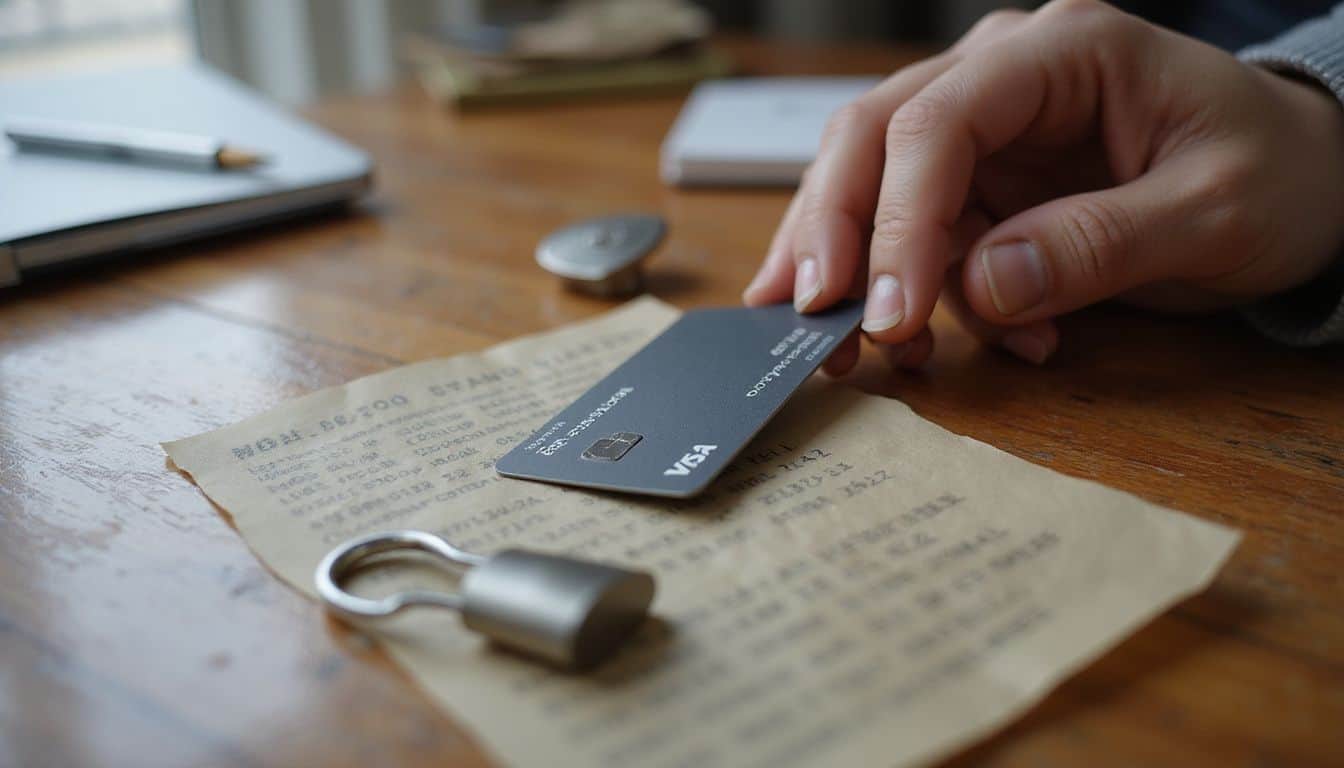Worried about losing cash or having it stolen from your purse? Many people do not realize how credit cards can be safer than cash—offering fraud protection and easy ways to stop unauthorized transactions.
In this post, you’ll learn six secure advantages of using a credit card instead of carrying money with you. Read on to keep your wallet safe and protect your finances.
Key Takeaways
Credit cards protect you with zero liability on fraudulent charges—unlike cash, which disappears forever once it’s stolen or lost.
Today’s cards have EMV chip technology, reducing counterfeit card fraud by 70% at U.S. stores as of late 2017.
Banking apps let you instantly freeze your credit card if it’s misplaced or stolen—no more unwanted purchases.
Immediate notifications alert you whenever your card is used, allowing quick action to stop further fraud.
By 2025, credit card security will likely get even better—84% of global cardholders already pay using biometrics like fingerprints or facial recognition.
Table of Contents
Security Features of Credit Cards

Credit cards pack powerful safety tools that cash simply can’t match. Modern cards use smart chips, encrypted networks, and instant alerts to shield your money from thieves and hackers.
Fraud Detection Systems
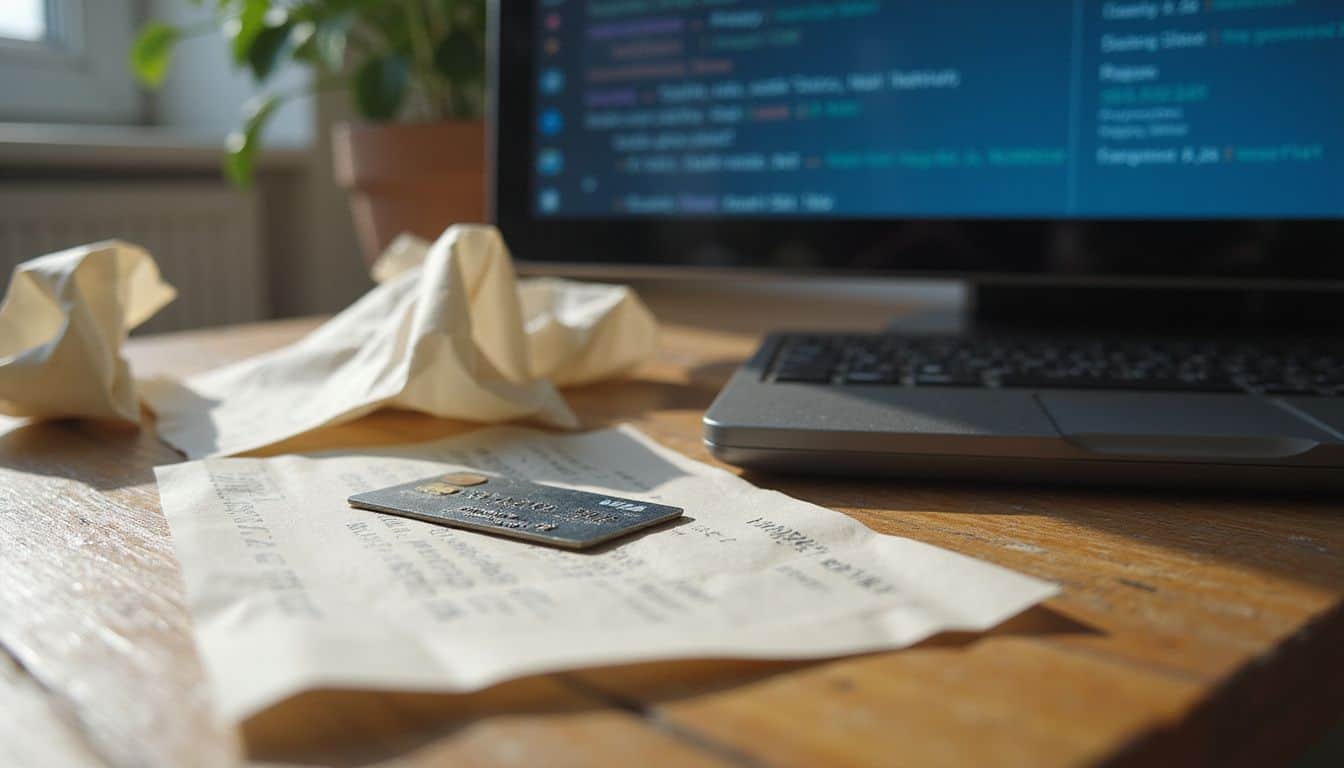
Today’s credit cards have smart, built-in systems that track your spending habits closely. These clever systems separate purchases into groups—”normal” or “suspicious”—to quickly spot fraud.
Banks use big data and cloud technology to check unusual activity on your account. For instance, if you normally shop around your hometown, but suddenly a purchase pops up in another country…
alarms go off right away. The best part: this security quietly runs behind the scenes without any extra effort from you.
Credit card security is like having a personal bodyguard for your money that never sleeps.
Online shopping has exploded, making fraud protection even more essential today. Advancing technology creates trickier scams—but also smarter tools to fight them off. Your bank might send a quick text alert or freeze your card if they notice odd spending patterns.
Deep-learning technology helps make these protections even stronger, although research here is still expanding. Now, let’s explore encryption and tokenization—the extra safeguards keeping your transactions safe and secure.
Encryption and Tokenization
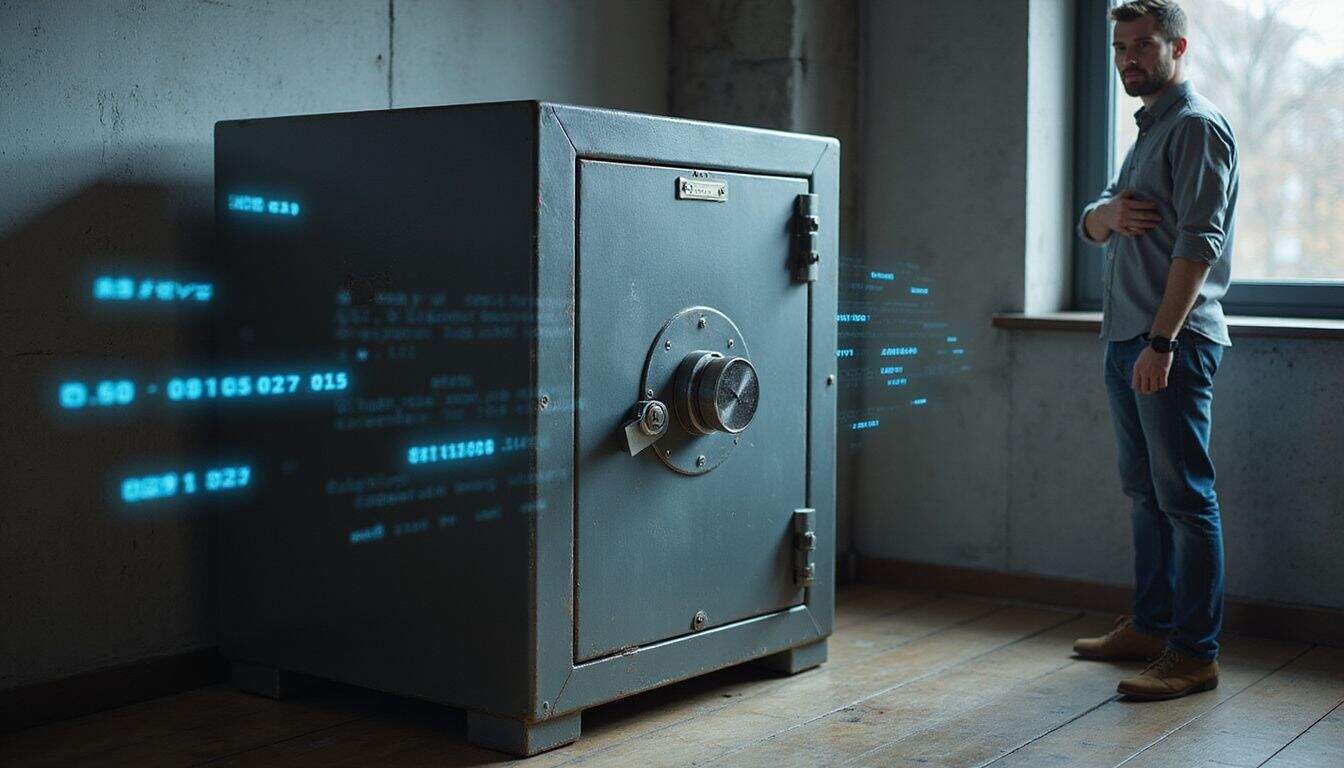
Credit cards don’t just catch shady transactions—they also shield your money with advanced security tools. Encryption acts like a secret code, scrambling your payment details into unreadable patterns.
Only someone holding the correct digital key can decode it, effectively blocking hackers. Thanks to smart security measures such as EMV chip technology, fake-card fraud dropped 70% in U.S. stores by late 2017.
Another security upgrade is tokenization. In simple terms, it swaps your actual credit card numbers with random codes. These random codes—or tokens—are worthless if criminals get their hands on them.
Tokens only work within the approved payment system, making online shopping safer. And unlike encrypted data, tokens can’t turn back into your original card numbers unless there’s special access to a secure storage area called a token vault.
Together, encryption and tokenization help credit card companies follow tough industry standards, keeping your private money info safely out of reach.
Two-Factor Authentication

Two-factor authentication (2FA) goes beyond basic encryption and gives your credit card transactions an extra layer of security. This method confirms your identity in two separate ways before letting you make a purchase.
Your smartphone often handles this check, using fingerprint scans or facial recognition. Many banks now prefer push notifications instead of text messages to approve your transactions.
The National Institute of Standards and Technology points out that SMS-based checks aren’t as secure as newer options—push alerts offer better protection.
Certain credit card issuers offer authentication tokens for added safety. These tokens might be physical gadgets, like small keychain fobs, or mobile apps that display special access codes.
I recently activated 2FA on my credit card, and it made me feel much more secure. Even if thieves somehow find my card number, they’d also need my phone to make purchases. Passwordless options are gaining popularity too—they provide greater security while keeping your life simple.
Protection Against Theft and Loss

Credit cards offer peace of mind when your wallet goes missing. You can freeze your account with a quick phone call or app tap, stopping thieves before they spend your money.
Ability to Lock or Freeze a Card
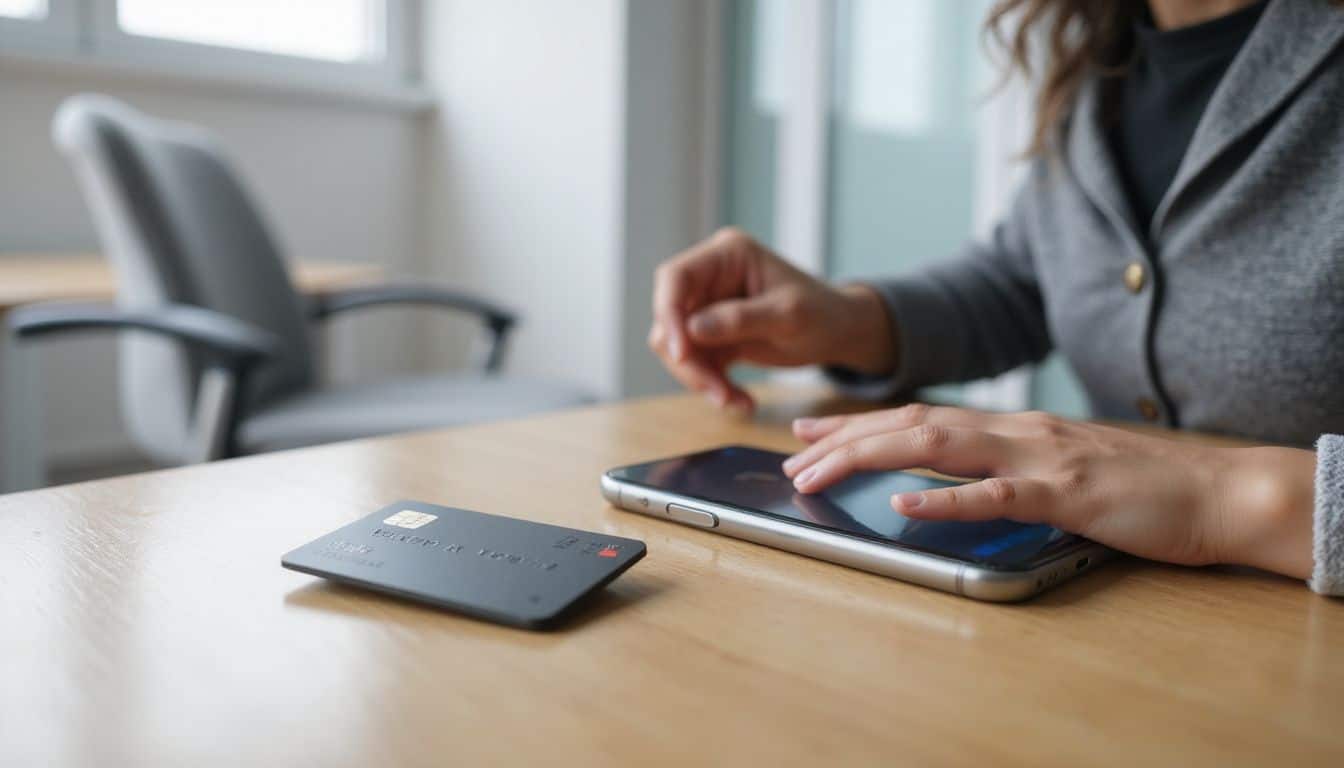
Banking apps put control of your credit cards right at your fingertips. If your card is lost—or you just want tighter spending control—you can immediately lock it using your phone.
This action stops anyone new from making purchases, but your regular monthly payments will still go through. The lock kicks in right away, giving peace of mind that no one else can swipe your card after you secure it.
Many women especially appreciate this option for online shopping or trips away from home.
Even when sitting unused in a purse or drawer, your credit stays protected and secure. Most leading card companies offer card-lock services through their mobile banking apps or simply by calling their customer service line.
The process is easy enough…just log into your account, select card settings, and flip on the lock. This digital feature conveniently shields your money without forcing you to fully cancel or replace the card itself.
Next up, we’ll cover how credit cards help you quickly recover money lost to fraud—much easier than dealing with stolen cash.
Easier to Recover Funds from Fraudulent Transactions

Credit cards have your back if someone steals your information. Cash disappears forever if stolen—but credit cards come with zero liability for fraudulent charges. That means you don’t pay anything for charges someone else made.
This protection is thanks to the Fair Credit Billing Act, a law that gives you clear legal backing. Credit card issuers typically react fast to fraud reports, quickly wiping fraudulent charges from your account while investigating.
The peace of mind that comes with credit card protection is priceless – knowing you can recover your money makes all the difference.
Reporting fraud to your credit card issuer is simple—just do it as soon as you spot something wrong. Fraudulent activity doesn’t directly affect your bank account balance, leaving your spending money untouched.
Debit card fraud, on the other hand, can drain your checking account fast, causing bounced payments and extra headaches. To boost your financial safety even more, you could explore ways to refinance credit card debt, cutting down your interest payments without losing valuable security perks.
Purchase Protections

Credit cards shield your money with strong purchase protections that cash can’t match. These safeguards give you power to dispute charges and protect big-ticket items from damage or theft.
Chargeback Rights for Disputed Transactions

Credit cards give you strong protection with chargeback rights. These allow you to dispute charges that aren’t yours or seem suspicious. One time, I spotted an odd $200 charge from an online shop I’d never visited.
I quickly called my credit company, and they paused the payment right away, then started an investigation. A law called the Fair Credit Billing Act protects these rights for all women with credit cards.
Starting a dispute is usually easy; just call your card company or log into your banking app. It’s much simpler—and safer—than trying to get stolen cash back. Plus, these rights give you extra time before you’re required to pay for disputed items.
Since 2015, credit card chargebacks have increased due to updated fraud protection rules. While it’s helpful for cardholders, retailers sometimes face extra costs, so it’s best to use the process responsibly for genuine issues.
Many banks even have instant purchase alerts now, so you can quickly see odd charges. This added layer of protection makes carrying your card a whole lot safer than having cash around in your purse.
Warranty and Return Protections

Many credit cards offer more than refunds on disputed charges—they provide helpful protections that shoppers often miss. Warranty extensions and return protections are common, yet often overlooked features on credit cards.
These benefits save money and headaches, especially if something goes wrong after a purchase. Say your new blender stops working right after the store’s return window closes; your card’s added warranty might cover repairs or even replacement at no extra charge.
Smart shoppers know that credit cards aren’t just payment tools—they’re shopping insurance policies.
is another handy feature, covering items against theft or accidental damage for a short period. Imagine accidentally breaking your smartphone screen or having those expensive sunglasses snatched—a quick claim with your credit card company could mean a full refund.
These security benefits work quietly in the background, activating automatically each time you swipe. Each credit card company provides different levels of coverage, though, so a quick check of your benefits summary can help you take full advantage of these helpful perks.
Monitoring and Alerts

Modern credit cards offer smart tracking that puts you in control of your money. Your phone can buzz with alerts each time your card gets used, giving you instant power to spot any weird charges.
Real-Time Transaction Notifications

Credit cards send instant updates directly to your phone, putting you firmly in control of your finances. Seconds after making a purchase, your phone buzzes, clearly showing the amount you’ve spent.
These real-time alerts help catch fraud quickly—I’ve personally caught an odd $200 charge within minutes, freezing my card immediately to prevent further harm. You can choose exactly which alerts you want, whether it’s for purchases above $50 or for any online transaction.
Banks typically send these notifications through texts, emails, or app messages, making it simple to keep a close eye on your money.
Digital wallets, such as Apple Pay and Google Pay, boost the value of these alerts even more. They automatically identify unusual spending activity and quickly warn you about possible fraudulent charges.
I’ve found this especially useful during trips because card companies notice transactions made far away and confirm they’re actually yours. Cash simply doesn’t provide this type of security—and that’s why using a credit card makes daily purchases safer and easier.
Spending Alerts and Limits

Setting up spending alerts on your credit card puts instant control into your hands. You’ll receive quick texts or app updates right after every purchase—making it simple to spot unusual activity.
Lots of women rely on this tool to catch fraud early, before small issues grow into bigger headaches. Your bank sends notifications directly to your phone, keeping you closely connected with your account.
You can also boost financial safety by setting customized spending limits. These daily or monthly caps fit your budget and block unnecessary impulse purchases. They help maintain low balances on your card, which keeps your credit score strong.
I set up spending limits during holiday shopping last year, and it genuinely stopped me from going overboard. Most card apps let you quickly change these limits with a simple tap or two, putting better financial habits within easy reach.
Advantages of Not Carrying Cash
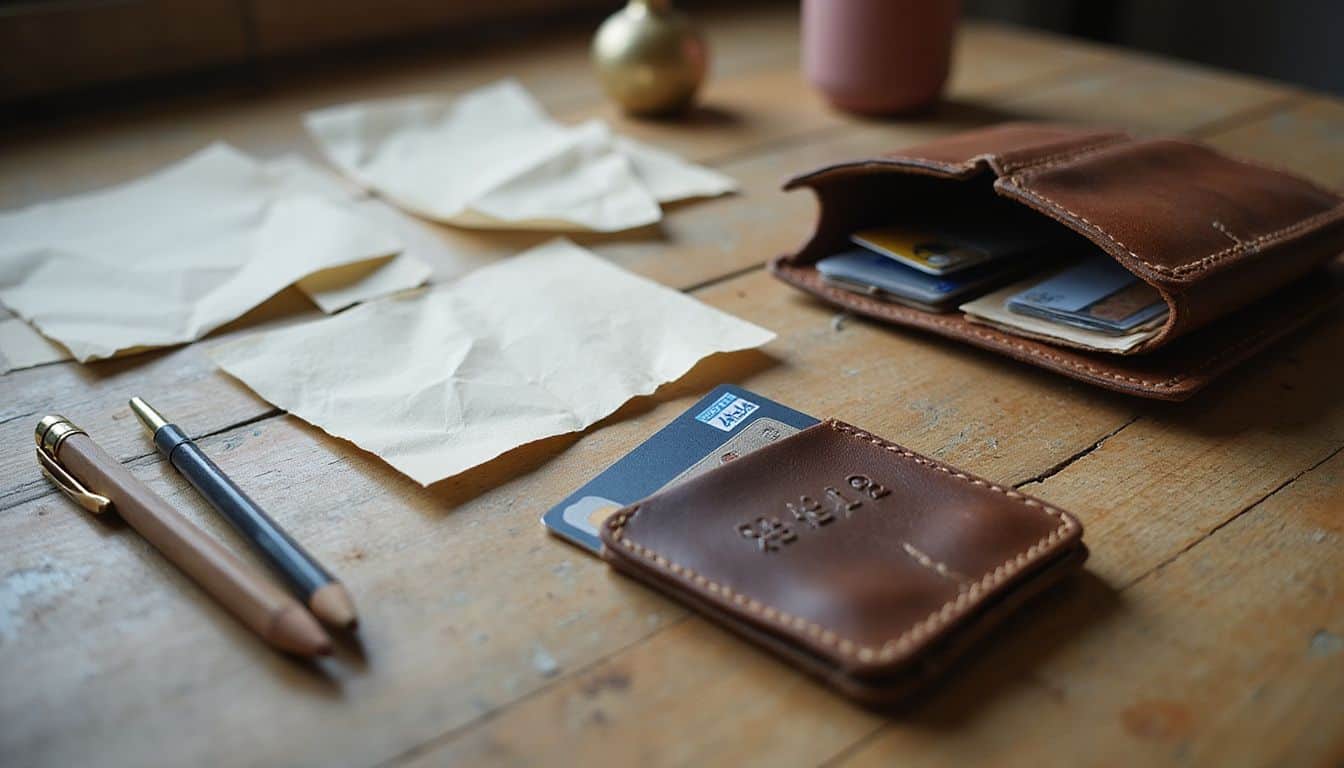
Leaving your cash at home keeps you safe from pickpockets and street thieves who target people with visible money. Digital payments through credit cards cut the risk of losing money during your daily trips or while shopping at crowded places.
Reduced Risk of Physical Theft
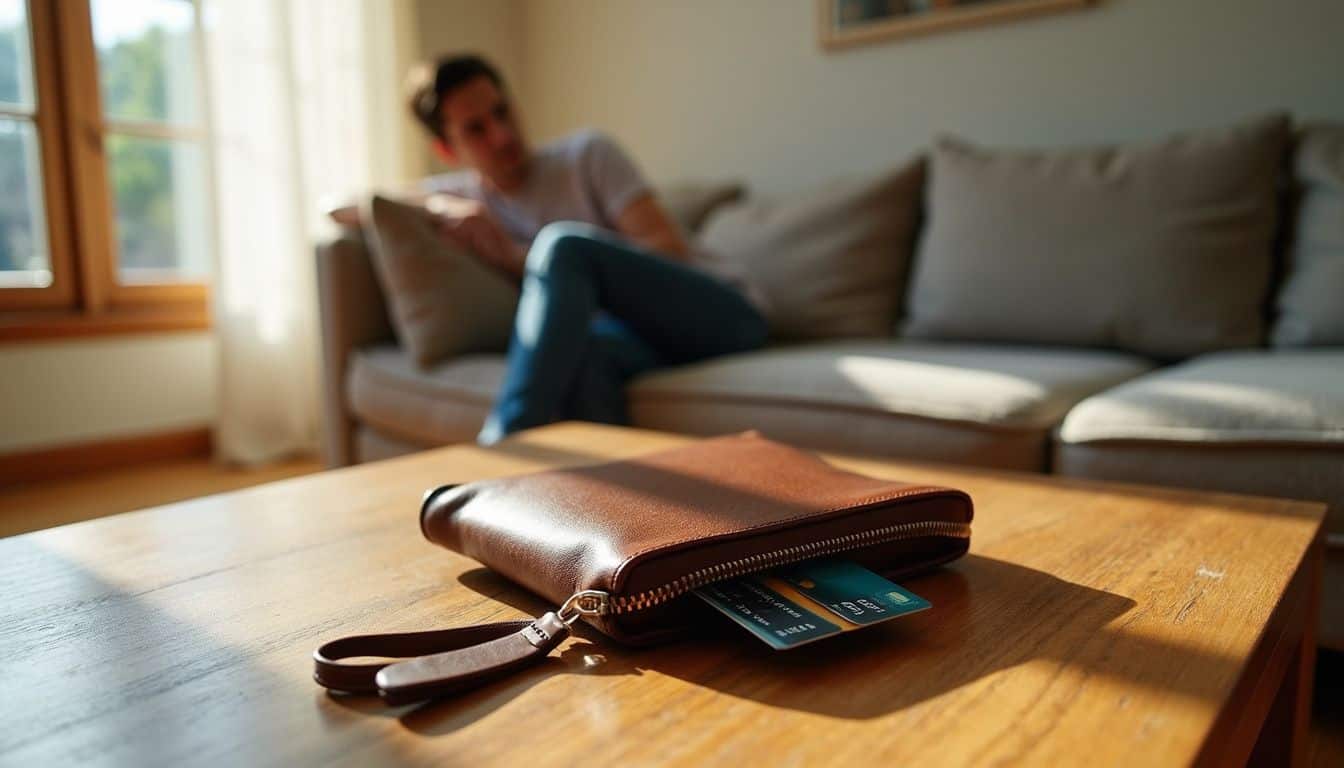
Carrying cash around puts you at risk of theft—in ways credit cards simply don’t. If a thief grabs your wallet filled with bills, that money vanishes for good. Credit cards offer safer options, since you can easily cancel them as soon as they’re missing.
On top of that, the Fair Credit Billing Act limits your liability for any charges you didn’t approve. Many women prefer to avoid carrying large amounts of cash in purses or pockets, especially when traveling.
Having bundles of money makes your wallet stand out to thieves and pickpockets. Credit cards let you shop safely, without drawing unwanted attention. Banks and credit companies have fraud alerts that quickly catch strange charges.
Typically, banks now text you if they spot odd activity on your account. It’s a helpful layer of security, keeping your finances safe and making your shopping or dining outings stress-free.
And if surprise expenses pop up, having a credit card handy means you won’t need a quick trip to the nearest ATM or bank.
No Need to Carry Large Amounts of Money
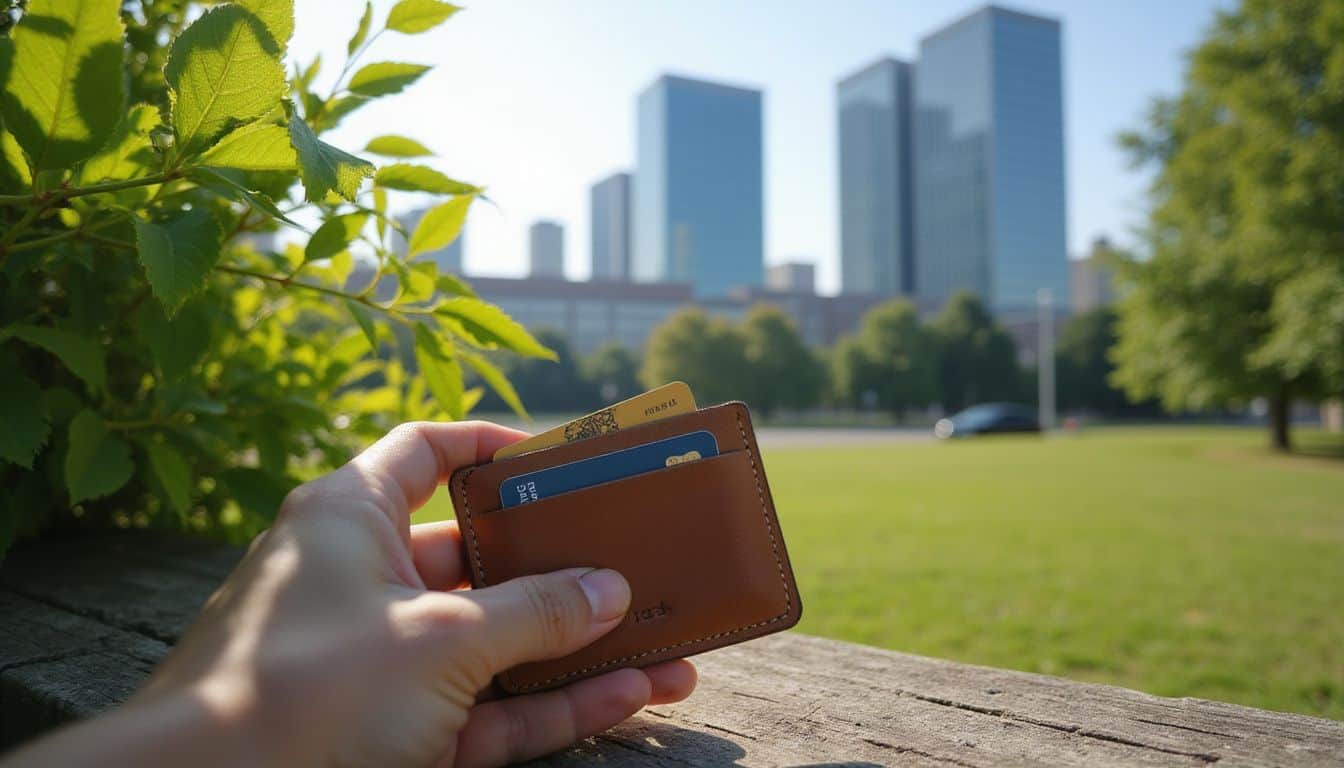
Credit cards free you from carrying around bulky stacks of cash in your purse or wallet. This small adjustment instantly lowers your risk of theft or losing money. Many women feel safer strolling with just one slim plastic card rather than a bundle of bills, which can easily slip out or attract unwanted attention.
Your credit card easily covers tiny everyday items—like coffee—or larger purchases, such as furniture, without weighing you down.
Using cash limits your spending capacity strictly to what’s physically in your pocket. Credit cards offer a ready line of credit, removing that limitation entirely. If a surprise expense pops up—whether it’s unexpected car troubles or sudden medical bills—you can pay immediately, without running around town searching for an ATM.
Electronic payment systems also give you clear, instant records of your purchases, simplifying your monthly budget planning—and helping you skip the hassle of collecting and managing paper receipts.
How Will Credit Card Security Evolve in 2025?
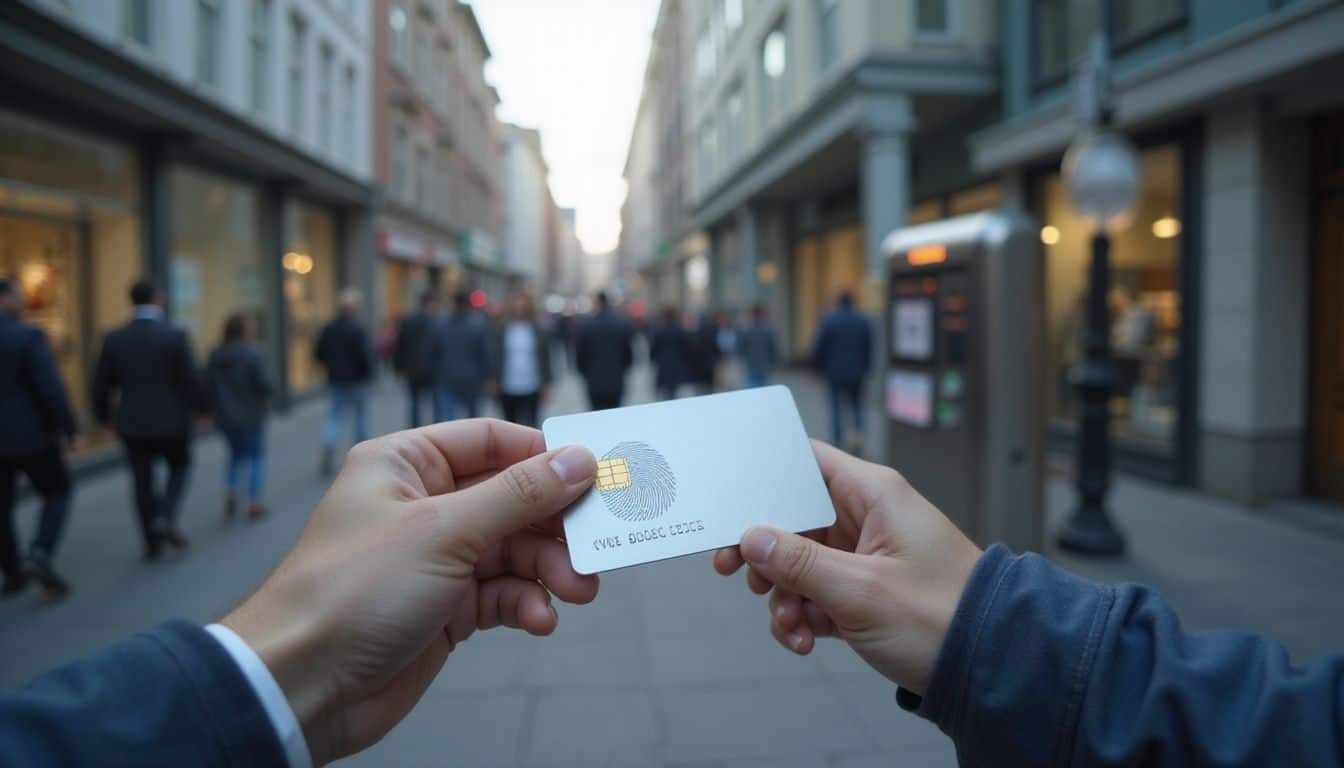
By 2025, credit card security will be tougher and safer than today—good news for anyone worried about theft. Global fraud losses might reach $43 billion by 2026, pushing banks to improve their defenses.
One way they’ll do this is through quantum-resistant tech, making it harder for advanced computers used by hackers to break through. Already, around 84% of global card users rely on face scans or fingerprints to approve their payments.
These biometric checks mean thieves can’t easily use your stolen details. Simple password use is fading fast since your unique physical features offer much stronger security.
Gas station skimming fraud could drop around 80% because of improved EMV chip technology. Banks and financial institutions must follow strict PCI rules, which guard your sensitive card data from new risks.
I recently tried a credit card that scans your fingerprint, and it didn’t let anyone else complete a transaction. Your smartphone will also become more vital, acting both as your wallet and personal security device.
Magnetic stripes on cards may soon vanish completely, replaced by chip technology generating unique transaction codes. Even with your card number in hand, scammers won’t manage to produce workable counterfeit copies—for use online or in-store.
People Also Ask
Why are credit cards safer than carrying cash?
Credit cards come with fraud protection cash simply doesn’t match. Carrying cash means if it’s stolen or lost, it’s gone forever—but credit cards are different. If you notice suspicious charges, you can contact your provider right away. Thanks to the Fair Credit Billing Act, reporting unauthorized charges promptly helps you recover the money quickly.
What protection do I have against credit card fraud?
Most credit cards limit fraud liability to just $50—some even offer zero liability. Card companies often notice unusual spending, alert you promptly, and freeze the account to prevent further misuse. These fraud-detection measures make credit cards safer than cash or debit options.
Can credit cards help build my financial future?
Absolutely! Making regular credit card payments on time builds your credit history and raises your credit score. A high credit score helps you qualify for better interest rates on loans, mortgages, or car financing.
Do credit cards offer benefits beyond security?
Credit cards provide rewards and perks cash can’t touch. These benefits include cash-back offers, travel discounts, insurance plans, extended warranties on purchases, and even airport lounge access. Paying with cash won’t earn you any additional perks or protection.
How do EMV chips make credit cards safer?
EMV chips assign a unique code to each transaction, unlike the older magnetic strips that store static information. This prevents thieves from copying your card information at checkout—significantly lowering your risk of identity theft or fraud.
Are contactless payments with credit cards secure?
Contactless credit card payments are extremely secure. They rely on encryption to protect your information and only work within short distances—usually just inches. Plus, your bank limits how many small purchases can occur without entering a PIN or signature, making theft harder for criminals who may have found your card.
References
https://www.sciencedirect.com/science/article/pii/S1319157822004062
https://www.chargeback.io/blog/creditcard-encryption-vs-tokenization (2025-02-17)
https://www.techtarget.com/searchsecurity/definition/two-factor-authentication
https://www.investopedia.com/terms/t/twofactor-authentication-2fa.asp
https://www.chase.com/personal/credit-cards/education/basics/credit-card-lock-a-quick-guide
https://www.nerdwallet.com/article/credit-cards/credit-card-vs-debit-card-safer-online-purchases (2023-05-31)
https://www.nerdwallet.com/article/credit-cards/credit-card-chargebacks (2023-06-26)
https://consumer.ftc.gov/articles/using-credit-cards-and-disputing-charges
https://finance.yahoo.com/personal-finance/credit-cards/article/how-credit-card-protections-work-163858920.html (2025-02-13)
https://www.lendingtree.com/credit-cards/articles/credit-card-purchase-protection/
https://www.discover.com/credit-cards/card-smarts/pros-of-credit-cards-vs-cash/
